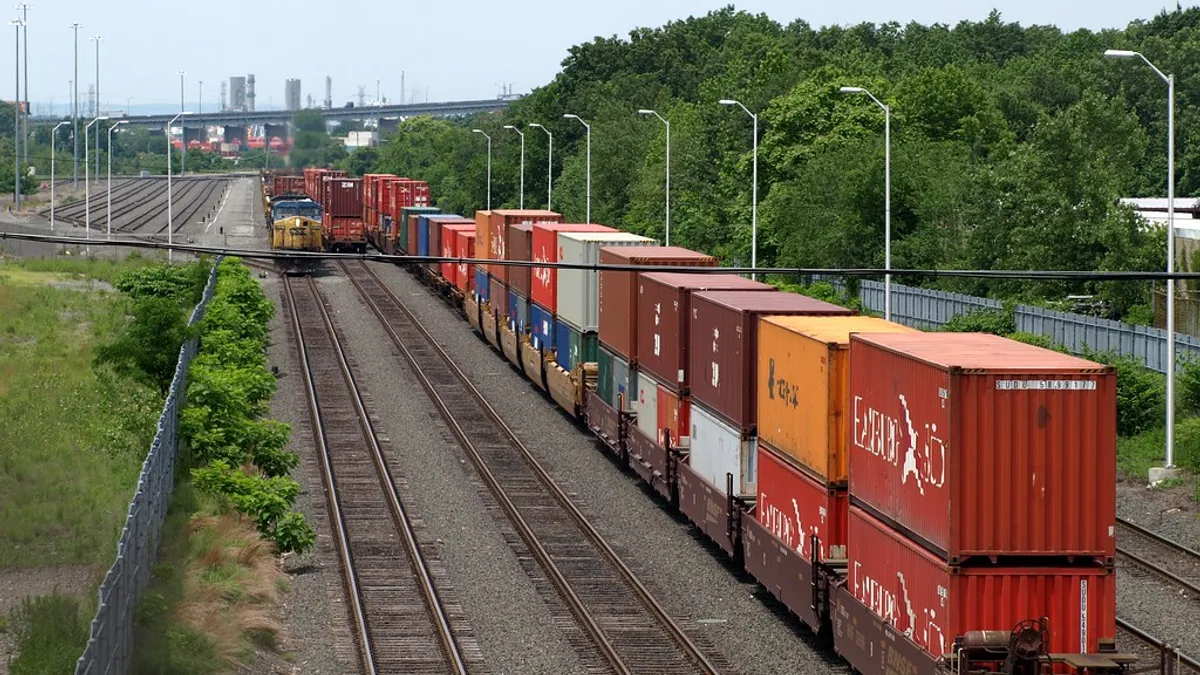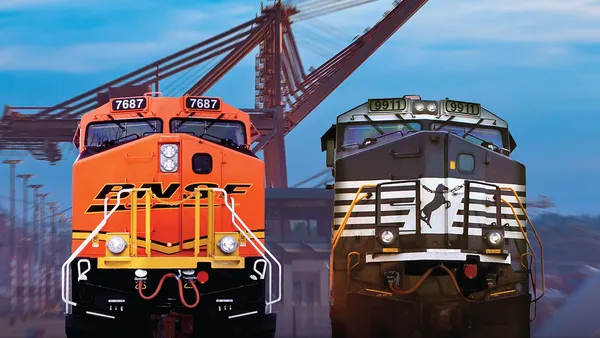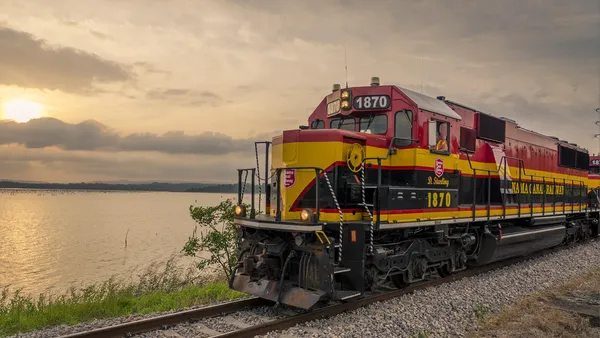Dive Brief:
- Precision-scheduled railroading (PSR) is driving discord between railroads and their customers, a roundtable of rail shippers told the U.S. House of Representatives Subcommittee on Railroads, Pipelines and Hazardous Materials Thursday.
- Reduced headcount, service changes without notice, fewer yards in operation, insufficient locomotives, increased demurrage and accessorial charges — all on top of higher rates, drove several shippers to remark that though railroad profitability is climbing, service is at an all-time low.
- "They may claim that PSR improves service but our experience and that of many other shippers has been the opposite," said Emily Regis, fuels resource administrator for the Arizona Electric Power Cooperative, speaking on behalf of the Freight Rail Customer Alliance. Regis and the other speakers called for more involvement from the Surface Transportation Board (STB) and members of Congress in providing structure to help shippers in disputes about rates and fees related to PSR.
Dive Insight:
The debate between shippers and railroads on the merits of PSR, characterized by cutting lanes, yards and locomotives in order to deliver more consistently on time and increase operational speed, has raged since CSX first began overhauling its operation in 2017. But now that six of the seven Class I railroads are adopting the principles demonstrated by the late Hunter Harrison at CSX and Canadian National before that, more shippers are affected.
Randy Gordon, president of the the National Grain and Feed Association told the members: "For our sector, PSR has resulted in increasing arbitrary, abrupt and disruptive changes to operations plans and service schedules, often negating tens of millions of dollars in customers’ investments in their facilities, track space and other infrastructure that the railroads insisted that they make in order to continue to have rail service."
A particular focus of the discussion was demurrage and accessorial fees. Railroads levee demurrage fees when rail cars exceed prescribed loading and unloading time. Accessorial fees include charges for any event or service other than the movement of freight from origin to destination — examples include weighing cars, diverting a shipment in transit or additional switching services.
In the age of PSR, railroads claim the increased focus on speed warrants stricter adherence to schedules, resulting in such fees when scheduled times aren't met. At the hearing, shippers claimed the application of these fees is inconsistent and unfair in how and to whom they are applied.
"Kinder Morgan doesn't argue or contest the purpose or concept of demurrage. Our concern lies in a one-sided and monopolistic methodology by which the railroads assess, bill and attempt to collect these charges," said Josh Etzel, vice president of operations at Kinder Morgan, the largest terminal operator in North America. Etzel said his company is involved in multiple lawsuits with railroads and customers over these fees. And the issue of who is liable for the fees warrants review by the STB, Etzel argued.
Several speakers, including Rep. Dan Lipinski, D-Ill., expressed the impression that railroads view such fees not as simply a deterrent, but as a revenue stream.
"Since the adoption of PSR [International Paper] has seen our demurrage more than double to over $7 million,” added Mike Amick, senior vice president at International Paper.
The testimony supported the view that under the priorities inherent in PSR, railroads are more focused on investors and regulators than shippers.
"In the rail industry, the customers are not the primary concern ...the federal government is the primary concern. And they want to keep the system exactly the way it is now," said Mike Lacey, president of Solvay Chemicals.















